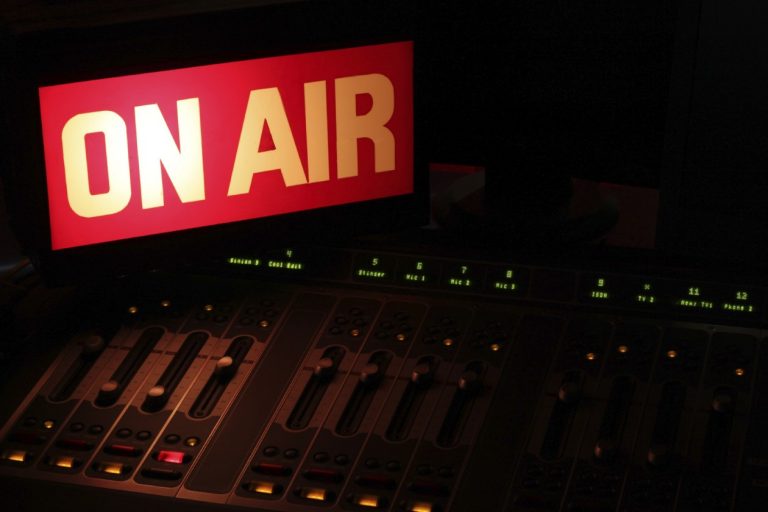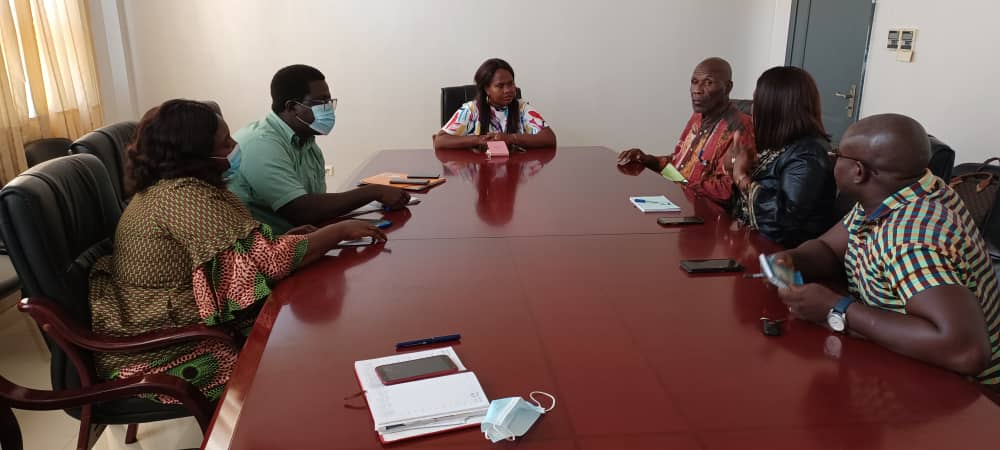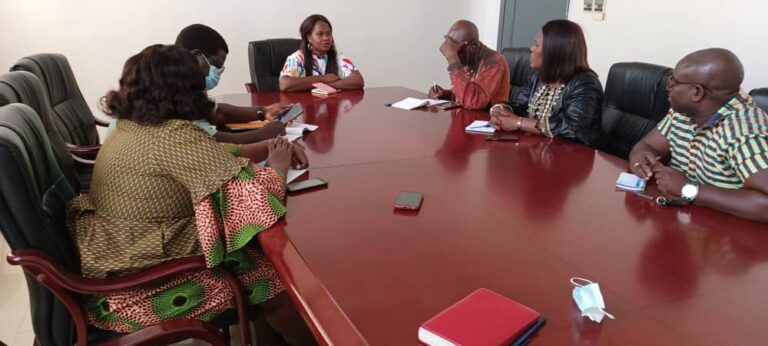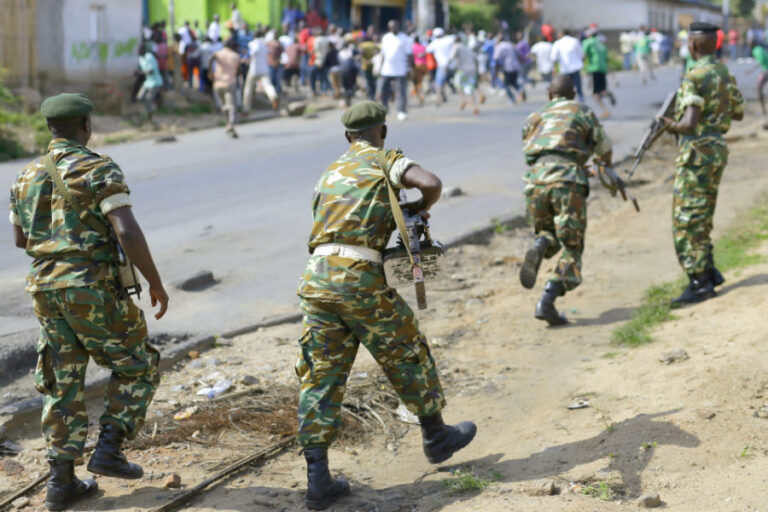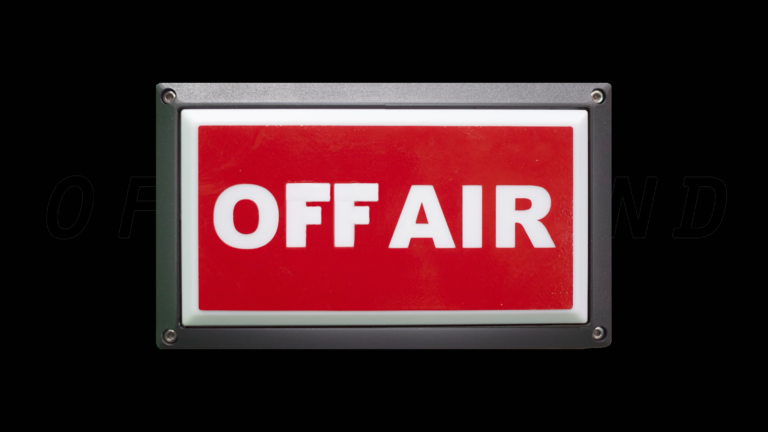The world celebrates International Women’s Day today on the theme ‘breaking the bias’. Adwoa Adobea-Owusu of the Media Foundation for West Africa (MFWA) in this piece highlights the factors limiting women in the digital space, contributing to the bias.
The COVID-19 has highlighted now more than ever the significance of digital literacy. Alongside the restrictions imposed on the citizenry to curtail the spread of the virus came a new world, where the internet is king.
Video conference apps, emails, messaging apps, and telephone calls, replaced the brick-and-mortar office spaces which characterised the formal setting for meetings and other work-related activities.
The use of these digital and internet-based technologies also became the safest option for family and friends who wanted to keep in touch at the peak of the pandemic. Some academic work was conducted online to make up for the closure of schools. Sales and marketing were done through courier services which also use geographic information systems, most of which are all internet and digital-based.
Indeed, everyone was required to be part of the sudden and fast-paced transition into the digital revolution that had already started, but not everyone was able to keep up with the speed.
Unfortunately, women were part of those whose efforts to catch up with the twirl were inhibited due to the shackles of lack of digital skills, online safety and security challenges, high data tariffs, and unreliable internet service.
This piece sheds light on these shackles and how they break them to help close the gender gaps and derive the benefit that comes with having digitally literate women.
Internet statistics
Globally, there are 7.9 billion people in the world who are using 8.3 billion mobile devices. Out of that number of the 7.9 billion people, only a 4.9billion of them are internet users while a 4.6billion are active social media users. West Africa has only a 3.6% share of global internet users. The sub-region represents only 1.6% of the total population of social media users.
According to the Web Foundation’s report in 2021, globally, men are 21% more likely to be online than women.
As of January 2021, 29% of women were found to have access to internet as compared to a previous 20% in 2016.
An afrobarometer report comparing data from 2011/2013 and 2016/2018 indicates an increase in both men’s and women’s presence online in Africa. The proportion of women who own mobile phones grew by six percentage points, while women’s regular Internet use more than doubled within the period.
MFWA’s digital report on women
An advocacy report produced by the Media Foundation for West Africa (MFWA) highlighted the role of women and acknowledged the successes chalked despite the many constraints and biases society holds against them.
Regulatory institutions in their bid to ensure an improved digital world introduced reforms and policies such as the cyber security act 2020 and the data protection act 2012 which have been in existence for a decade but have recently been enforced.
The National Gender Policy and National Communications Policy are but a few of the policies, introduced to help women become skilled in the digital world.
In spite of all these, the report observed that lack of digital skills remains one of the major factors limiting women. The lack of this, sometimes, exposes women to cyber fraud and bullying, and unsecured internet access which may have more serious consequences on the individual.
Impact of biased digital literacy on the economy
An analysis by the Alliance for Affordable Internet conducted in 2021 shows countries have missed out on $1 trillion USD in GDP as a result of women’s exclusion in the digital world. In 2020, the loss to GDP was $126 billion USD. This, the report indicated, could have been invested in many socio developmental projects in these lower- and middle-income countries.
The report, which focused on some selected African countries, revealed a 30.4% average digital gender gap. It is estimated that if the gap was closed, the economies of these countries would expand by an additional $524 billion USD over the next five years. On the other hand, the study concluded that if the gap were to remain at its current size, the total loss of GDP between 2011 and 2025 would amount to $1.5 trillion USD.
However, if 600 million more women are connected to the internet in 3 years, this would translate to a rise in global GDP of between US$13 billion and US$18 billion.
This economic hit means billions in lost taxes that could be invested to improve education, health, and housing.
Beyond just access to information, the internet has also been economically empowering for women. For example, women in Nigeria with internet access during the Covid-19 pandemic were 10 percent less likely to report a negative impact on their income as a result of the pandemic, compared to those without a connection.
Internet-based abuse
In Ghana, for instance, there have been several cases where women, for their low digital literacy, have been duped on social media platforms.
Some women have been trolled on the internet. A recent story is told of a famous Ghanaian whose style of dressing on TV caused a stir on social media. She was trolled, assaulted, and condemned on these platforms just because of her fashion sense, an act that many men would ordinarily not be exposed to.
Financially, women are still struggling to achieve and maintain independence. Most women in Ghana rely heavily on their male partners for financial support, hence, have little or no money to purchase high data tariffs. This impacts their use of the internet constraining them from being exposed to the digital world.
Way forward
The solution is in protecting and enhancing digital rights, providing equal opportunities to women by educating and giving them the necessary training to make them skilled.
As the world celebrates International Women’s Day, it is imperative that all stakeholders join hands to break the bias. Civil society organisations and government institutions are encouraged to continue advocacy on women’s rights online issues.
The media, one of the major platforms for spreading information should continue to highlight online opportunities for women, engage stakeholders in discussions that would enlighten and provide solutions to the numerous factors affecting women in the digital world.
The major players in all these, the telecommunication operators must be encouraged to expand their resources translating into good internet connectivity in rural areas and also reduce data tariffs for the benefit of all.
The numerous government policies and interventions rolled out to ensure equitable access to the internet would be a success if there is continuous monitoring and evaluation to keep individuals responsible accountable.
Just as funding is being pumped into science, technology, engineering, and mathematics, resources must also be challenged into the education and sensitization on digital rights, especially that of women and girls.
These would ensure that we do not turn International Women’s Day into another day of lecturing, proverbial sayings, and quotes from women of old, chants about equal rights, and empowering conversations. Rather, let’s strive to break the bias with actions.



